Think Good - Feel Good —— A Cognitive Behaviour Therapy Workbook for Children and Young People
----- 青少年认知行为疗法工作手册
About the author. 1 Cognitive behaviour therapy: theoretical origins, rationale and techniques. The empirical foundations of cognitive behaviour therapy. The cognitive model. Cognitive deficits and distortions. Core characteristics of cognitive behaviour therapy. The goal of cognitive behaviour therapy. The core components of cognitive behavioural interventions. A cautionary note. 2 Cognitive behaviour therapy with children and young people. Cognitive behaviour therapy with children under 12 years of age. Assessing the basic skills required to engage in cognitive behaviour therapy. Cognitive behaviour therapy with adolescents. Common problems when undertaking cognitive behaviour therapy with children and adolescents. 3 Think good -- feel good: an overview of materials. Thoughts, feelings and what you do. Automatic thoughts. Thinking errors. Balanced thinking. Core beliefs. Controlling your thoughts. How you feel. Controlling your feelings. Changing your behaviour. Learning to solve problems. 4 Thoughts, feelings and what you do. The magic circle. What you think. Core beliefs. Beliefs and assumptions. Important events. Automatic thoughts. How you feel. What you do. Think Good -- Feel Good: Thoughts, feelings and what you do: putting it all together. Think Good -- Feel Good: The magic circle. Think Good -- Feel Good: The negative trap. Think Good -- Feel Good: The IF / THEN quiz. Think Good -- Feel Good: What I think, what I do, how I feel? 5 Automatic thoughts. Me, what I do and my future. Why do I listen to my negative thoughts? The negative trap. The negative cycle. a Hota thoughts. Think Good -- Feel Good: Thoughts and feelings. Think Good -- Feel Good: My a hota thoughts. Think Good -- Feel Good: Nice thoughts about myself. Think Good -- Feel Good: Nice thoughts about my future. Think Good -- Feel Good: Unpleasant thoughts about myself. Think Good -- Feel Good: Worrying thoughts about what I do. Think Good -- Feel Good: What are they thinking? 6 Thinking errors. The downers. Blowing things up. Predicting failure. Feeling thoughts. Setting yourself up to fail. Blame me! Think Good -- Feel Good: Identifying thinking errors. Think Good -- Feel Good: What thinking errors do you make? 7 Balanced thinking. So how does it work? Think Good -- Feel Good: Looking for evidence. Think Good -- Feel Good: Balanced thinking. Think Good -- Feel Good: Thought thermometer. 8 Core beliefs. Identifying core beliefs. Challenging core beliefs. Talk with someone else. Think Good -- Feel Good: Identifying core beliefs. Think Good -- Feel Good: Challenging core beliefs. Think Good -- Feel Good: Common beliefs. 9 Controlling your thoughts. Distraction. Absorbing activities. Coping self--talk. Positive self--talk. Thought stopping. Turn the volume down. Test them. Throw them away. Think Good -- Feel Good: Test your thoughts and beliefs. Think Good -- Feel Good: The thought challenger. Think Good -- Feel Good: Looking for the positive. Think Good -- Feel Good: Positive self--talk. Think Good -- Feel Good: Coping self--talk. Think Good -- Feel Good: The a worry safea . Think Good -- Feel Good: Turn the tape off. Think Good -- Feel Good: Practise being successful. Think Good -- Feel Good: Thought stopping. 10 How you feel. What feelings do I have? Feelings and what you do. Feelings and what you think. Putting it all together. Think Good -- Feel Good: Thoughts and feelings. Think Good -- Feel Good: Activities and feelings. Think Good -- Feel Good: The Feeling Finder word search. Think Good -- Feel Good: What feeling goes where? Think Good -- Feel Good: My feelings. Think Good -- Feel Good: What happens when I feel sad? Think Good -- Feel Good: What happens when I feel angry? Think Good -- Feel Good: What happens when I feel anxious? Think Good -- Feel Good: What happens when I feel happy? Think Good -- Feel Good: Feelings and places. Think Good -- Feel Good: The Feeling Thermometer. 11 Controlling your feelings. Learn to relax. Physical exercise. Controlled breathing. Calming pictures. Relaxing activities. Prevention. Think Good -- Feel Good: The a feeling strong rooma . Think Good -- Feel Good: Feeling Finder: anger volcano. Think Good -- Feel Good: Learning to relax. Think Good -- Feel Good: My relaxing place. Think Good -- Feel Good: My relaxing activities. 12 Changing your behaviour. Increase fun activities. Map how you feel and what you do. Small steps. Face your fears. Dump your habits. Think Good -- Feel Good: Activity diary. Think Good -- Feel Good: Next step up the ladder. Think Good -- Feel Good: Things that make me feel good. Think Good -- Feel Good: Things that make me feel unpleasant. Think Good -- Feel Good: Things I would like to do. Think Good -- Feel Good: Face your fears. Think Good -- Feel Good: Small steps. Think Good -- Feel Good: Dump your habits. 13 Learning to solve problems. Why do problems happen? Learn to stop and think. Identify different solutions. Think through the consequences. Remind yourself what to do. Practise getting it right. Plan to be successful. Talk yourself through it. Think Good -- Feel Good: Identifying possible solutions. Think Good -- Feel Good: What are the consequences of my solutions? Think Good -- Feel Good: Looking for solutions. Think Good -- Feel Good: Talk yourself through it. Think Good -- Feel Good: Stop, plan and go. References. Index.
{{comment.content}}
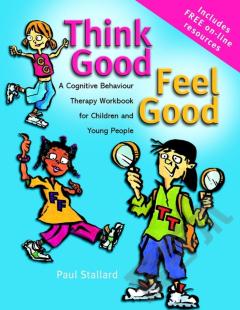
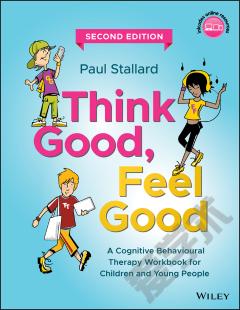
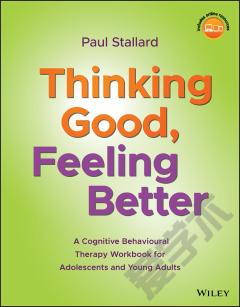
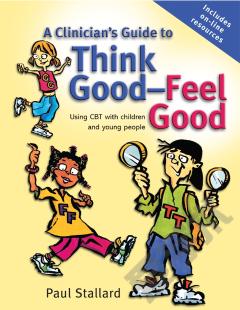
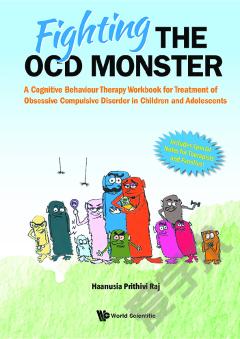
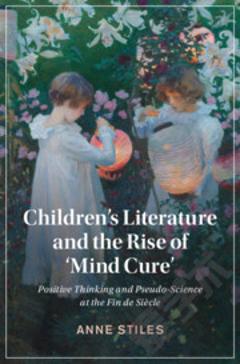


 京公网安备 11010802027623号
京公网安备 11010802027623号